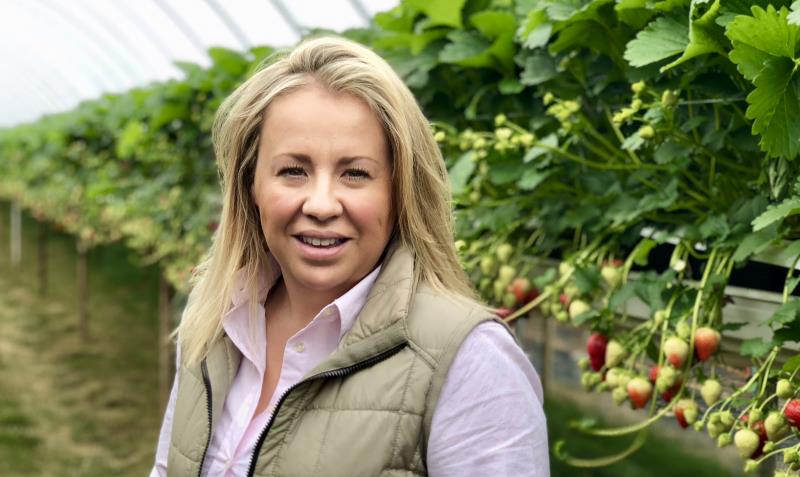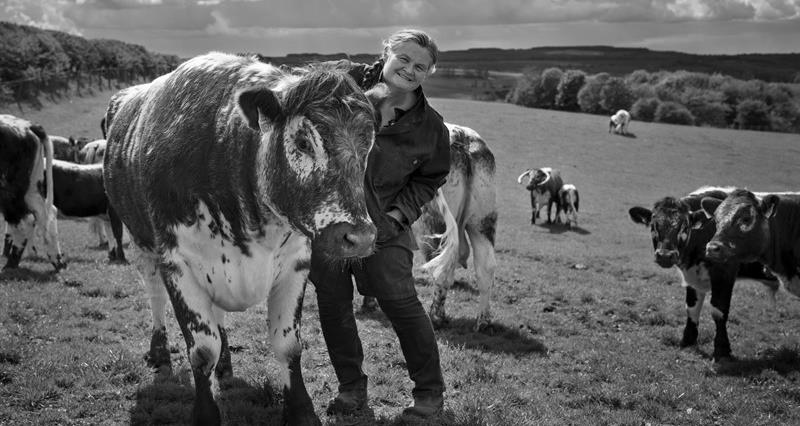When, at 15, Bethany informed her non-farming family that she wanted to go into the industry, she was told the only way to achieve her ambition was ‘to marry a farmer’.
That was four years ago. Today, she’s in the final stages of a Level 3 agriculture course at Askham Bryan College, York, and confident of getting where she wants – on her own terms.
Bethany is in a minority in that most of her classmates were born with mud already on their cot boots. Many, like Sophie Itchen and her older sister Charlotte, who’s working towards an agricultural degree at the same college, come from families who have historically handed land and businesses down through the male line.
Sophie and Charlotte, their mother and grandmother – all forthright, capable, skilled women – play an active role in their respective family farm businesses and, indeed, the wider rural community.
They don’t feel marginalised because of their gender. And they don’t feel their life choices are constrained by what’s often perceived as a male-dominated culture.
But comparatively few women have broken the industry’s ‘barn ceiling’ – or, at least, their status in driving farming forward hasn’t been publicly recognised.
Women's contribution hasn't been publicly recognised
According to government statistics, women make up 55% of the farming workforce in England and Wales if you include unpaid and family labour. But only around 16% are officially ‘farm holders’ – that is land owners or managers.
In Scotland, research found that while more than 80% of full and part-time working spouses on farms are women, only 7% are recorded as the owner/principal farmer.
Often, for all the heavy lifting they do behind the scenes commercially and domestically, women are regarded as the ‘quietly supportive’ partner.
Does this matter?
Does it matter? Maybe not to those who know their true value in the special space they occupy between family and farm. But, in the opinion of Professor Sally Shortall, Duke of Northumberland Chair of Rural Economy at Newcastle University, the extent to which women’s status is recognised beyond the farm gate is important – and not just because of the message it sends to those outside farming, like Bethany, that this is an inclusive industry in which they have equal opportunity. It could, in fact, influence policy coming down the track.
She argues that, as the focus shifts towards on-farm entrepreneurship and imaginative land stewardship – in both of which, studies show, women tend to make the running – everyone in farming will benefit from the industry having a more gender-balanced profile. As she puts it:
“If Defra wants to realise its agricultural vision, it needs to see all the players on the bench.”
Speaking at a recent Women in Farming conference, hosted by Yorkshire Agricultural Society, Professor Shortall told an almost exclusively female audience:
“The majority of people in senior agricultural committees tend to be men and it’s these groups that are involved in negotiating national policy.”
84% of the people representing the industry on Copa are men, she says (Copa and Cogeca are the united voice of farmers and agri-cooperatives in the EU). And this means that governments are missing out on women’s perspectives on important issues.
Policy development to reflect women's roles
In December, Defra (where 52% of senior civil servants are female, although the department is still struggling to close a more than 7% gender pay gap) will publish a study on women’s roles in English farm businesses.
It follows a similar exercise in Scotland, where the Women in Agriculture Taskforce – the first commissioned by any government – found that women’s contribution to the industry can be ‘undervalued, downplayed or simply unseen’. Its findings led to hard cash being made available to address issues such as lack of childcare in rural areas, training, leadership and succession.
The taskforce acknowledged that the main barriers to elevating women’s status were cultural not legal – adding that this would take decades to ‘chip away’. They argued that a key factor in driving culture change was seeing more women in publicly acknowledged positions of influence. Nevertheless, they stopped short of calling for the sort of quotas that have been so successful in challenging the lack of diversity in other sectors.
Professor Shortall, who co-led the research team steering the taskforce’s thinking, does believe quotas are needed to effect faster change. But, even if compelled to have more women in top roles, where do women find the time to take on that responsibility?
Leading the way
Annabel Makin-Jones, pictured below, is the founder of premium brands Annabel’s Deliciously British and Tame & Wild. She’s headed up the family’s 1,200-acre arable, fruit and flower-growing businesses near Leeds for 15 years.

In that time she has changed the direction of the business, showing both the entrepreneurship and focus on sustainability that Professor Shortall’s studies show women excel at – and all while bringing up her two children.
Annabel has watched other women – particularly those who have married into farming – take on much more than she believes would be expected of them in any other family-run enterprise. And yet, on paper, they are not recognised for their strategic and often transformational, contribution to the business.
Women are the right conduits for change
“As an industry, and as the people we all are, we suck it up and get on with it,” she says.
“Sometimes we go beyond what the role of your job on the farm is because you are part of the family. You think, this is the luck of the draw; this is the hand I have been dealt and you get stuck in, come hell or high water.
“It’s hard to define where work ends and family life begins," she adds. "And, because of the type of work we do, it eats into family time. It’s a unique situation and it has to affect the family dynamics.”
While she agrees that women need a louder voice and has forthright opinions on both government policy and the way the industry conducts itself, she struggles to see how she and others like her could add the role of advocate to their already over-loaded job description – nor cope with the pressure that comes with blazing that particular trail.
But she agrees that women, given the opportunity and support, are the right conduits for change – especially the change that Defra appears to envision.
“Looking at the next thing on the agenda, how we keep evolving and preparing for things. Women are good at that. There’s an alignment of thinking,” she adds. “For my own part, I feel very much the caretaker of this farm… to grow it and nourish it and look after it.”
Women as entrepreneurs
Professor Shortall’s research for Defra suggests that as pressure on farm incomes has intensified, it’s women who have created new products and new revenue streams, often without the benefit of training or business support. But they don’t describe themselves as entrepreneurs.
“This matters if money is going to be made available for entrepreneurial development,” she says, adding that many women were similarly motivated to pursue regenerative farming practices because they see it as not only a way to help the environment, but also, crucially, make a profit.
The issue is not just pertinent to the UK; one Irish MEP has said that ‘we need women in the heart of the sustainability conversation. We need different ways of thinking around the table of change’, while a Spanish colleague believes ‘giving women the opportunity to develop their agricultural activity is an act of equality’.
Leading by example
Annabel is unsure whether the Defra study will change anything, but she is leading by example. When she launched Annabel’s Deliciously British, she took the decision to put her name and her face to the brand. No one can say this woman’s contribution to farming goes unseen – nor should it.
